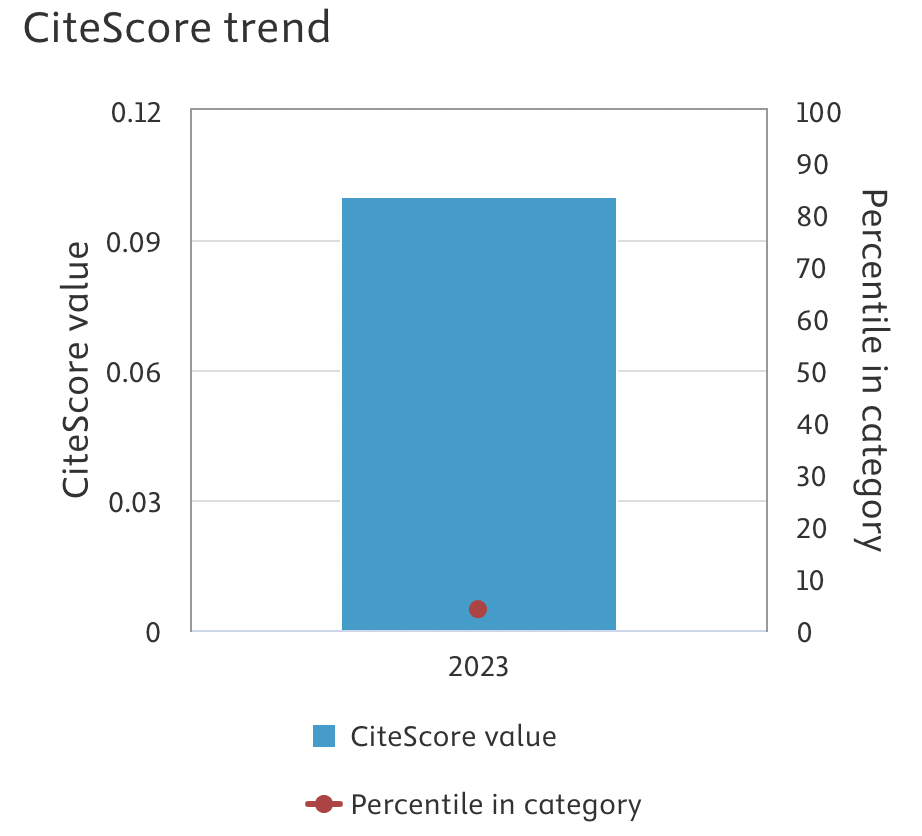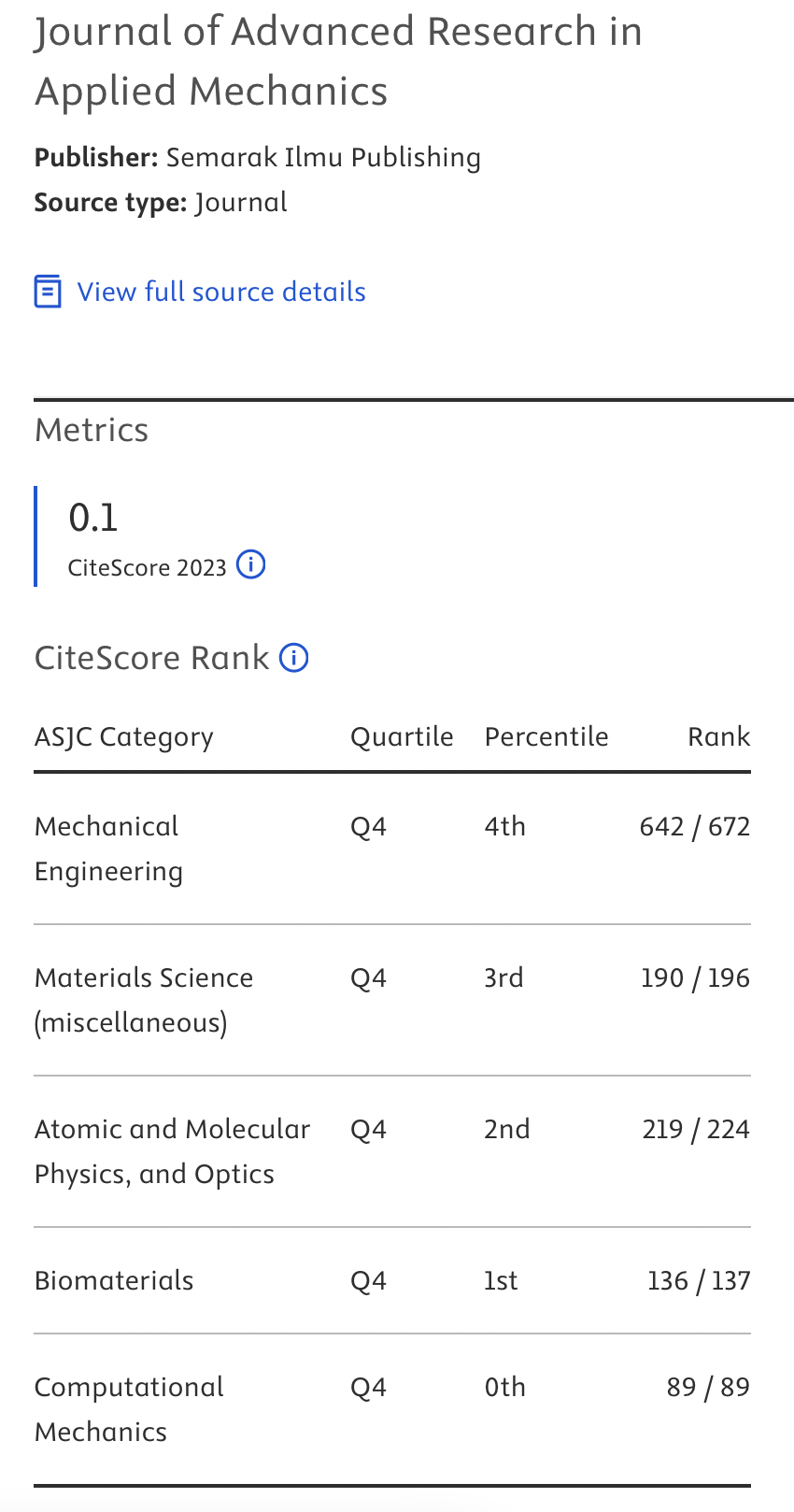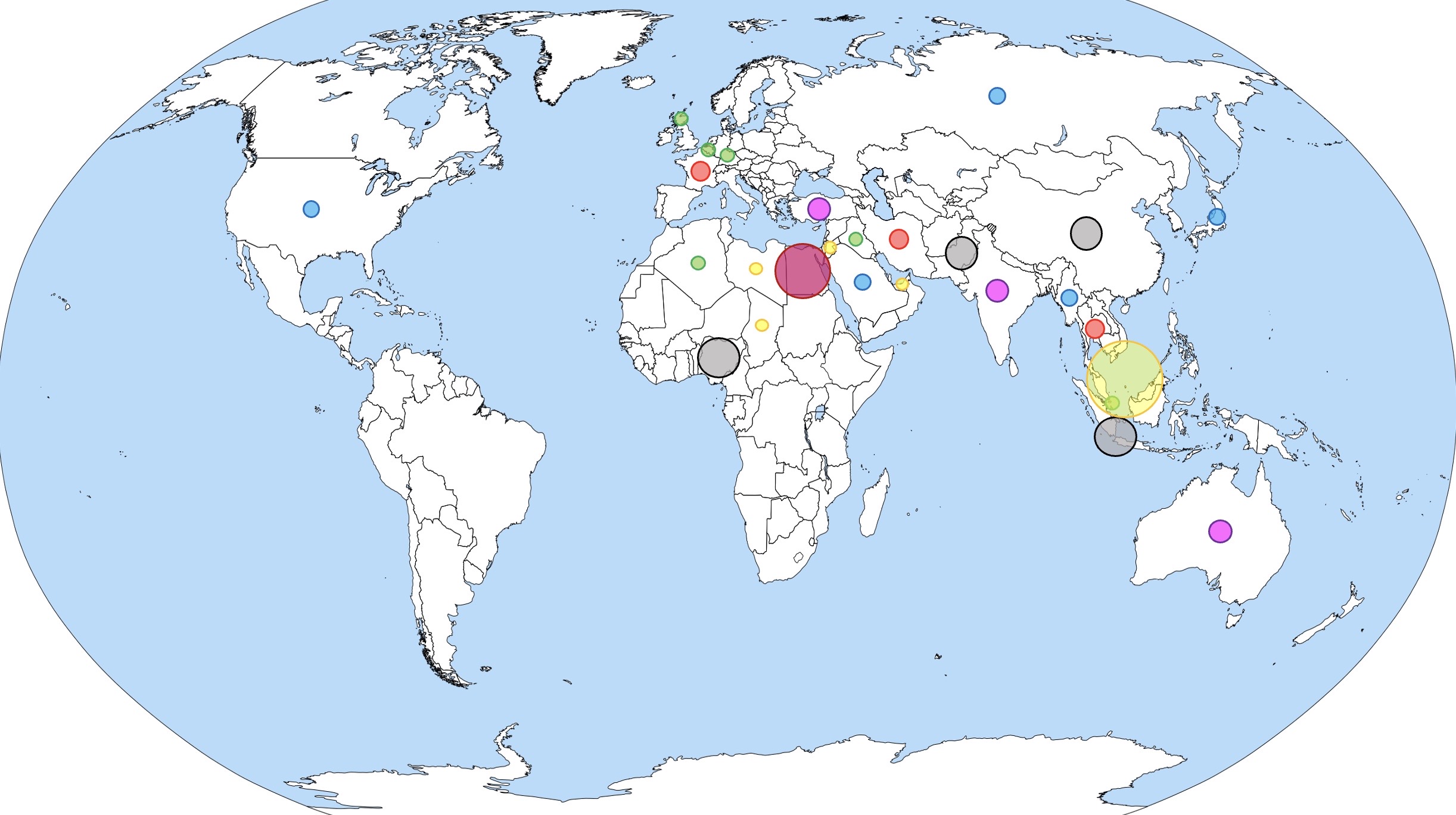Dimensional Error Analysis of Cortical Screw during Threading of Magnesium AZ31
DOI:
https://doi.org/10.37934/aram.125.1.1426Keywords:
Error, cortical, screw, threading, magnesiumAbstract
Developments in manufacturing to achieve large productivity and high-quality products in the modern era have necessitated the need of using suitable methods. Taguchi or robust design method has been implemented to optimise a process in a single response. This experiment aims to analyse the cutting parameters of geometrical errors of threads. Machining trials were conducted on the diameter of the workpiece (10, 14 and 18 mm), depth of cut (0.23, 0.3067 and 0.46 mm) and spindle speed (212, 318 and 424 rpm). Three responses, namely, pitch, height threads and angle thread error, were investigated. The external thread selected is metric M1,5 with three levels of three factors. Results show that spindle speed was the most significant factor that affected pitch error and height thread error. Depth of cut and diameter of the workpiece significantly affected thread angle error. The optimal condition to produce low thread angle error included machining at level 1 diameter of the tool, level 3 depth of cut of and level 3 spindle speed.
Downloads


























